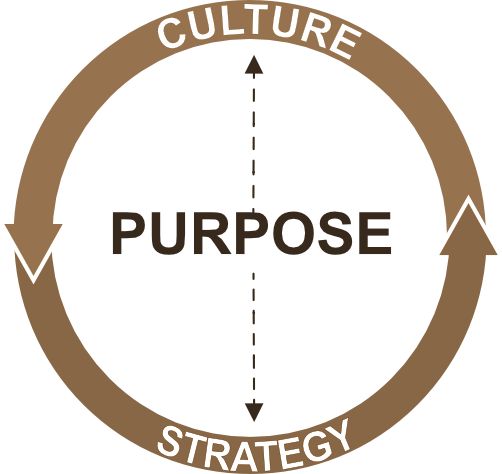"Culture eats strategy for breakfast”. A nice, catchy phrase. Many people whip it out to support sweeping claims about culture, strategy, transformation, innovation, etc. But is this truism really true?
I have seen strategies destroy cultures at least as often as I have seen cultures destroy strategies.
I once worked for a thriving organisation, with a great culture. It was an absolute joy to work there. When we had grown really big, there was a strategic decision to change the management structure of the company, to create more synergy between branches and be more coordinated in how we dealt with our larger clients. Sadly, this strategy flew in the face of the company culture we all loved and cherished.
The new management had no time for ‘fuzzy’ concepts like culture. They executed their plans with military precision and authoritarian disregard for any push-back coming from below. And they succeeded. Within two years they had completely eradicated the company culture of collaboration, innovation,mutual respect and the shared belief in the organisation’s mission to improve the world. What emerged instead was the kind of uninspiring, reward-focused, metrics-obsessed, internally competitive culture you find in many large organisations. Not entirely dysfunctional, but no pleasure to work in. Strategically speaking the plan succeeded. The company grew, everything was more centrally coordinated, costs went down, the larger clients were happy. Culturally speaking it was a disaster and killed off almost everything that made our company unique.
I have seen the opposite happen, too, many times.
Especially in the public sector, but certainly not just there, I have seen no shortage of sweeping, ambitious strategies proudly published in full colour on thick glossy paper, only to get completely bogged down in the glacial, grinding flow of the organisational culture. Cultures in which even the slightest risk is seen as impending disaster. Where protocol matters more than outcomes. Where making any kind of decision is a capital offence, likely to be punished with either an ignominious exit or a cynical promotion to a fancy but meaningless title. Or where competition and distrust are so deeply embedded that effective collaboration is almost completely impossible. Many a promising strategy got swallowed up by these cultures without leaving a trace.
Both outcomes are dysfunctional, and - I believe - a result of our misunderstanding of what culture and strategy really are. Both are ways for groups of people to achieve certain outcomes. One, strategy, is explicit and deliberate. The other, culture, is implicit and emerging. Both server longer-term goals. Strategies serve concrete outcomes through activity and change; cultures serve equilibrium and cohesion through values and behaviours. When these two align, great things happen. When they don’t, it’s dog eats dog. For breakfast, lunch AND dinner.

Did you like this blog post? Never miss an update when we publish next:
ENTERPRISE DESIGN PATTERNS
Capturing a wealth of experience from many sources, four world-class enterprise designers and architects present a collection of 35 immediately applicable solutions to successful enterprise design.
Buy the book